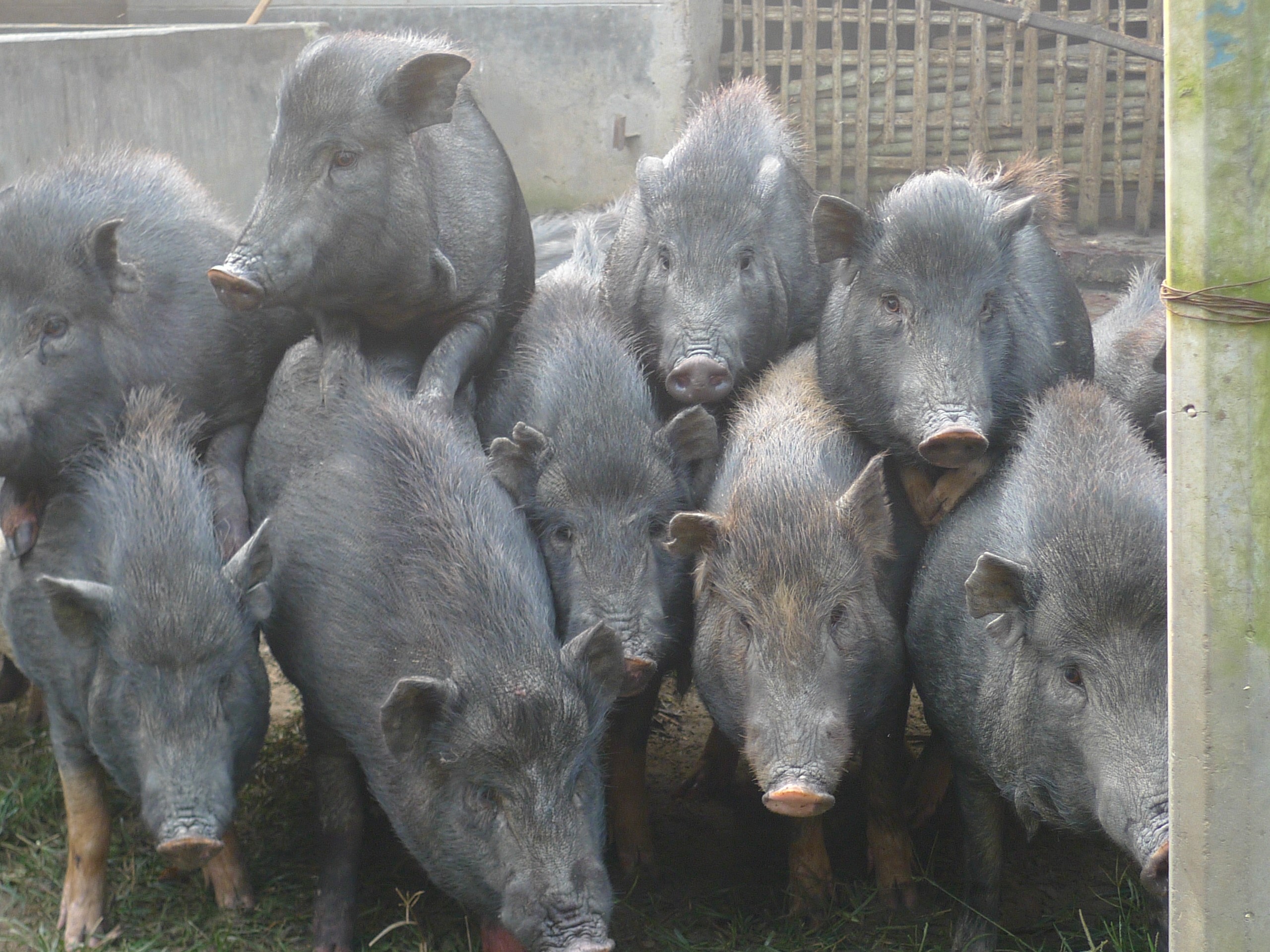In the absence of an effective vaccine against ASF virus, prevention in countries free of the disease depends on stringent import policies, ensuring that neither infected live pigs nor pork products are introduced into areas free of ASF. This includes ensuring proper disposal of waste food from aircraft, ships or vehicles coming from infected countries and enhance biosecurity measures in particular in backyard or non-commercial pig farms.
- In order to prevent introduction of ASF into your country:
- Early detection and appropriate biosecurity are the main tools to prevent and control the spread of ASF virus.
- Strengthen border vigilance activities such as strict enforcement of biosecurity and quarantine at all entry points into the country. Inspection and quarantine of all live pigs and pig products entering the country.
- Enhance awareness among all pig producers and other stakeholders (e.g., anyone involved in pig sector, traders, distributors, hunters, butchers etc) and private veterinarians of the impact of ASF. It is important to enhance on-farm biosecurity and understand clinical presentation of the disease.
- Enhance passive surveillance and immediate reporting to the Veterinary Authority any suspect cases, especially high mortality events that may occur.
- Due to the clinical similarity with other diseases, passive clinical surveillance always needs to be confirmed by laboratory.
- Facilitate the submission of samples from suspected cases to a reference laboratory for an appropriate prompt diagnostic.
- OIE Reference Laboratories on ASF are ready to provide technical support for diagnostic and/or epidemiologic surveillance upon request by member countries.
- Update your risk assessments and allocate sufficient resources to address the highest risks for the introduction and spread of ASF.
- Swill feeding practices are considered one of the major risks for the introduction and spread of the virus.
- Training of the national veterinary staff, clinical veterinarians and veterinary paraprofessionals, working in the pig sector on ASF disease detection, surveillance and control measures.
- Regulate the movement of live pigs and their products according to the recommendations of the OIE international standards
- Management of the ASF outbreak in domestic pigs is based on strict biosecurity and quarantine, movement control, culling and compensation.
- Backyard/non-commercial pig farms are at high risk and need to enhance biosecurity.
- Effective separation between wild and domestic pigs should be ensured.
